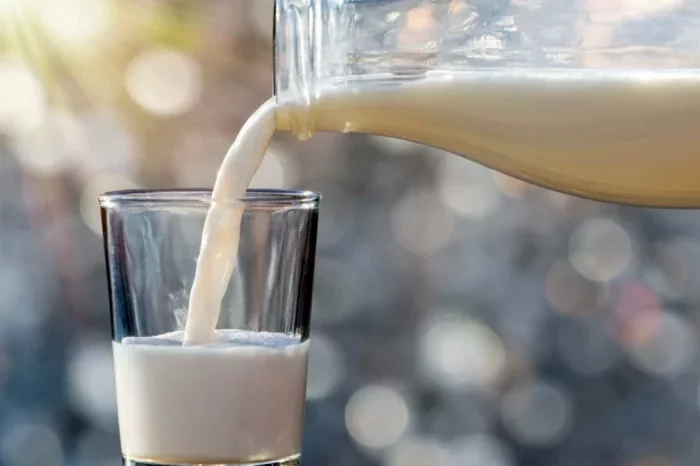Understanding Gestational Diabetes
Before delving into the specifics of what you can drink, it’s important to understand the nature of gestational diabetes. This form of diabetes typically occurs in the second or third trimester of pregnancy. It is caused by hormonal changes that make it more difficult for the body to use insulin effectively, leading to insulin resistance. While gestational diabetes usually resolves after childbirth, it increases the risk of developing type 2 diabetes later in life.
Managing gestational diabetes involves a combination of dietary adjustments, physical activity, and sometimes medication. Proper management is essential to prevent complications such as preterm birth, excessive birth weight, and the development of type 2 diabetes in both the mother and child.
The Importance of Hydration
Hydration is vital during pregnancy, but it becomes even more critical for those managing gestational diabetes. Staying well-hydrated helps maintain optimal blood sugar levels and supports overall health. However, not all beverages are created equal. Some can spike blood sugar levels, while others can help keep them stable.
Water: The Best Choice
Water should be your go-to beverage when managing gestational diabetes. It contains no calories, carbohydrates, or sugars, making it an ideal choice for staying hydrated without affecting blood sugar levels. Drinking enough water helps your body process glucose more efficiently and can aid in reducing the risk of complications associated with gestational diabetes.
How Much Water Should You Drink?
The general recommendation for pregnant women is to drink about 8-12 cups (64-96 ounces) of water per day. However, this can vary based on individual needs, activity levels, and the climate you live in. If you are unsure about the right amount of water for you, consult your healthcare provider.
Herbal Teas: A Flavorful Option
Herbal teas can be a great alternative to plain water, offering both hydration and a variety of flavors without added sugars or calories. However, not all herbal teas are safe during pregnancy, so it’s important to choose carefully.
Safe Herbal Teas for Gestational Diabetes:
Ginger Tea: Ginger tea can help with nausea, a common pregnancy symptom, and is safe for those with gestational diabetes. It has anti-inflammatory properties and is free of carbohydrates and sugars.
Rooibos Tea: Naturally caffeine-free and rich in antioxidants, rooibos tea is a safe option that can be enjoyed hot or cold.
Peppermint Tea: Known for its soothing effects on the digestive system, peppermint tea is another caffeine-free option that is safe during pregnancy.
Herbal Teas to Avoid:
Licorice Root Tea: Licorice root can increase blood pressure and has been linked to preterm labor.
Chamomile Tea: While often considered safe, some studies suggest chamomile tea may increase the risk of miscarriage or preterm labor, so it’s best to avoid it unless advised by your healthcare provider.
Milk: Choose Wisely
Milk is a good source of calcium, which is essential during pregnancy for the development of the baby’s bones and teeth. However, milk contains carbohydrates, which can affect blood sugar levels.
Low-Fat or Skim Milk:
Low-fat or skim milk can be a good option for those with gestational diabetes, as it contains fewer calories and saturated fats compared to whole milk. It’s important to monitor portion sizes, as even low-fat milk contains carbohydrates that can raise blood sugar levels.
Alternative Milks:
Plant-based milks, such as almond, soy, or coconut milk, can be alternatives to dairy milk. However, it’s crucial to choose unsweetened varieties, as sweetened versions can contain high levels of added sugars. Additionally, some plant-based milks may be lower in protein and calcium, so be sure to choose fortified options if you go this route.
Coconut Water: A Natural Electrolyte Drink
Coconut water is often touted as a natural electrolyte drink, rich in potassium and magnesium. It’s lower in calories and sugars compared to most fruit juices, making it a better choice for those with gestational diabetes.
Benefits of Coconut Water:
Hydration: Coconut water is an excellent hydrator, providing essential electrolytes without the high sugar content of sports drinks.
Low Glycemic Index: With a low glycemic index, coconut water has a minimal impact on blood sugar levels.
Considerations:
While coconut water is generally safe, it’s important to consume it in moderation due to its natural sugar content. A small glass (about 8 ounces) is usually a safe amount, but always check with your healthcare provider.
Coffee: Moderation is Key
Many women wonder if they can still enjoy their daily cup of coffee during pregnancy, especially with gestational diabetes. The good news is that moderate coffee consumption is generally considered safe.
Caffeine Intake Recommendations:
The American College of Obstetricians and Gynecologists (ACOG) recommends limiting caffeine intake to 200 milligrams per day during pregnancy, which is roughly equivalent to one 12-ounce cup of coffee.
Considerations for Gestational Diabetes:
Black coffee contains no carbohydrates or sugars, so it won’t directly impact blood sugar levels. However, it’s important to be mindful of what you add to your coffee. Sugar, flavored syrups, and creamers can add significant carbohydrates and calories, which can affect blood sugar levels. Opt for unsweetened almond milk or a small amount of low-fat milk if you prefer your coffee with a little extra flavor.
Fruit Juices: Handle with Care
Fruit juices are often perceived as healthy, but they can be problematic for those with gestational diabetes due to their high sugar content and lack of fiber. Even 100% fruit juices can cause rapid spikes in blood sugar levels, which is why they should be consumed with caution.
Diluted Fruit Juice:
If you’re craving fruit juice, consider diluting it with water to reduce the sugar content. For example, mix one part juice with two or three parts water. This can help satisfy your craving without causing a significant increase in blood sugar levels.
Better Alternatives:
Whole fruits are a better choice than fruit juice because they contain fiber, which helps slow the absorption of sugars. If you do choose to drink juice, opt for small portions and pair it with a source of protein or healthy fat to help stabilize blood sugar levels.
Smoothies: A Balanced Approach
Smoothies can be a nutritious and satisfying option for those with gestational diabetes, but they must be made with care to avoid excessive sugar content.
Creating a Gestational Diabetes-Friendly Smoothie:
Base: Start with a base of unsweetened almond milk, coconut milk, or plain water.
Fruits: Choose low-glycemic fruits such as berries, which are lower in sugar compared to fruits like bananas or mangoes.
Protein: Add a source of protein, such as Greek yogurt, protein powder, or a handful of nuts, to help balance the carbohydrates from the fruit.
Fiber: Include fiber-rich ingredients like chia seeds, flaxseeds, or a small amount of oats to further stabilize blood sugar levels.
Greens: Leafy greens like spinach or kale can be added for extra nutrients without significantly altering the flavor.
What to Avoid
Sugary Beverages:
Sugary beverages like soda, sweetened iced tea, and energy drinks are high in added sugars and offer little to no nutritional value. These drinks can cause rapid spikes in blood sugar levels and should be avoided by those with gestational diabetes.
Alcohol:
Alcohol is not recommended during pregnancy for a variety of reasons, including the risk of fetal alcohol syndrome. For those with gestational diabetes, alcohol can also interfere with blood sugar control and should be completely avoided.
Special Considerations
Artificial Sweeteners:
Some pregnant women with gestational diabetes may turn to artificial sweeteners as a way to satisfy their sweet tooth without affecting blood sugar levels. While many artificial sweeteners are considered safe during pregnancy, it’s important to use them in moderation and choose options that have been approved by your healthcare provider.
Medications and Insulin:
If you are taking medication or insulin to manage your gestational diabetes, be aware that your beverage choices can affect your blood sugar levels. For example, drinking a sugary beverage could require an adjustment in your insulin dose. Always follow the guidance of your healthcare provider when it comes to managing your medications and diet.
Tips for Making the Right Choices
Read Labels: Always check the nutritional information on beverages to understand their carbohydrate and sugar content.
Portion Control: Even with gestational diabetes-friendly beverages, it’s important to monitor portion sizes to avoid consuming too many carbohydrates or calories.
Stay Informed: Stay in regular contact with your healthcare provider or a registered dietitian who can help you make informed choices about your diet and beverages.
See also: At What Week Does Gestational Diabetes Develop?
Conclusion
Managing gestational diabetes requires careful attention to both what you eat and what you drink. Water remains the best choice for hydration, but other options like herbal teas, low-fat milk, coconut water, and smoothies can also be part of a healthy diet. By making informed choices and monitoring your blood sugar levels, you can help ensure a healthy pregnancy for both you and your baby. Always consult with your healthcare provider before making any significant changes to your diet or beverage choices during pregnancy.
Related topics:
What Causes Stillbirth In Gestational Diabetes


























